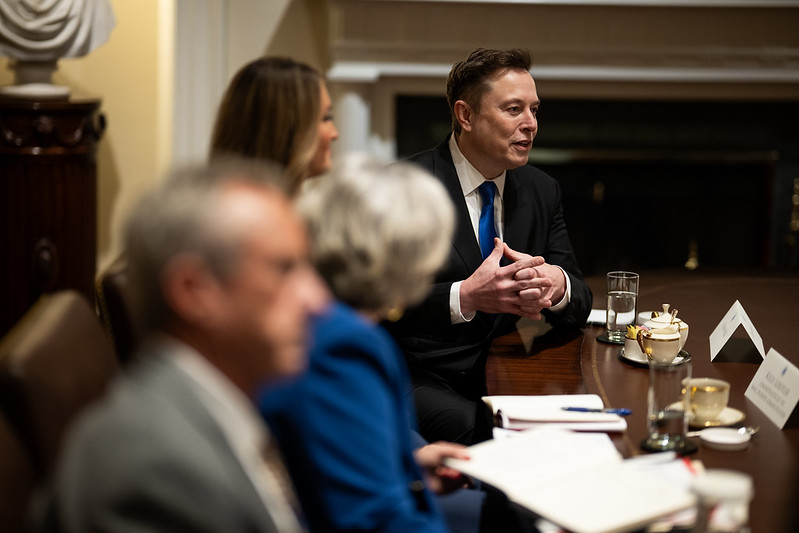Already a subscriber? Make sure to log into your account before viewing this content. You can access your account by hitting the “login” button on the top right corner. Still unable to see the content after signing in? Make sure your card on file is up-to-date.
Tesla CEO Elon Musk has confirmed he will be scaling back his time at DOGE following Tesla’s plunging sales and profits.
Getting into it: Yesterday, Tesla revealed disappointing first-quarter earnings, with results falling well short of Wall Street’s expectations. Revenue came in at $19.34 billion—down from $21.3 billion a year ago and below the $21.43 billion forecast. Most notably, Tesla’s net income plunged 71% year-over-year, marking the company’s steepest profit decline in recent history. Auto revenue alone dropped by 20%, and Tesla confirmed that it had delivered 50,000 fewer vehicles compared to the same period last year, making it the weakest quarter in nearly three years.

On the earnings call, Musk addressed the growing frustration over his dual roles at Tesla and the Department of Government Efficiency (DOGE), which some analysts and investors have blamed for the automaker’s faltering performance. “Starting next month, May, my time allocation to DOGE will drop significantly,” Musk told shareholders, explaining that the agency’s “initial setup is mostly done.” While defending DOGE’s mission to reduce “waste and fraud,” Musk admitted that the controversy surrounding his political involvement had become a distraction. He also hinted that his association with the Trump administration may have impacted Tesla’s brand, especially in international markets. “I think the right thing to do is fight the waste and fraud and try to get the country back on the right track,” Musk said, while assuring investors that Tesla remains his top priority going forward.
Musk also expressed concern over recent Chinese export controls on rare earth magnets, a critical component for Tesla’s Optimus humanoid robots. China, which holds the world’s largest reserves of rare earth metals, now requires export licenses for magnet shipments—something that could impact Tesla’s production plans.
This all comes as Tesla sales have tanked in key international markets, most notably across Europe. The company is also facing fierce competition from Chinese EV giant BYD, which has repeatedly surpassed Tesla in quarterly sales and is poised to overtake it in full-year global EV sales by 2025 if current trends continue.






